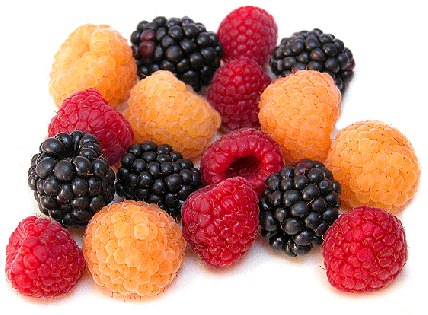Breast cancer is the most common cancer amongst women. One in 9 Australian women are diagnosed with breast cancer before the age of 85, of whom three-quarters are aged over 40 years.
Superfoods for breast care:October is National Breast Cancer Awareness Month. Be aware of the risks and do what you can to reduce them.
Date: October 12 2012

While advances in diagnosis, treatment and management in recent years have resulted in significant improvements, 40 women a day are diagnosed with breast cancer and seven will lose their lives – more than 2,700 each year.
Raising awareness, through National Breast Cancer Awareness Month in October and related activities, is an important part of reducing the impact of breast cancer on Australian women and families.
During October, Australia's main breast cancer organisations – Breast Cancer Network Australia, McGrath Foundation, National Breast Cancer Foundation and Cancer Australia - all hold events to raise funds and awareness for breast cancer. It is a time to highlight the dedicated and ongoing medical research that is helping to advance knowledge and understanding of the disease and provide improvements in detection, treatments, patient care and health outcomes for those diagnosed with breast cancer.
Risk factors
The general risks for an increased chance of getting breast cancer are being a woman and getting older. In a small percentage of cases, family history is also a risk factor - your risk of developing breast cancer increases if a close relative is diagnosed with breast cancer, the number of your relatives diagnosed with breast cancer and if your relatives are diagnosed at a young age.
While most of us can do little to change the general risk factors for developing breast cancer, there are some very important things that you can do to help reduce your chances of getting the disease.
• Reduce your alcohol consumption. Your risk of breast cancer increases with each standard drink per day.
• Maintain a healthy weight throughout your life.
• Active women of all ages have a reduced risk of breast cancer compared to women who do not exercise. The more exercise you do, the greater the benefits.
• Ensure you eat a balanced diet, with at least five servings of vegetables and two servings of fruit a day.
• Breastfeeding for at least 12 months can reduce your breast cancer risk.
Superfoods
Here are some of the so-called superfoods that are considered, as a minimum to be very good for you and possibly preventative, by American nutritionists with expertise in cancer.
• Tomatoes are rich in the antioxidant lycopene, which is thought to slow breast cancer cell growth.
• Berries (strawberries, blueberries, raspberries, blackberries) have several powerful antioxidants which have been shown in cell culture studies to reduce free radical damage to healthy cells, according to the American Institute for Cancer Research. In separate research, they were shown to slow the growth and shorten the lifespan of breast cancer as well as other cancers including prostate cancer.
• Green tea is rich in the polyphenol EGCG, which has been shown to slow the spread of breast cancer cells.
• Turmeric (or a compound in it) may play a role in blocking the expression of a molecule called RANKL, which is found in the most deadly and aggressive breast cancer tumour cells.
• Preliminary research in mice has found that including walnuts in the entire lifespan reduced the risk of developing breast cancer by half.
• Green leafy vegetables, but broccoli in particular, are powerhouses thanks in part to a compound called sulforaphane that actually helps the body fight the spread of tumours.
• Pomegranates are known for their anti-cancer properties, thanks to a richness in anti-inflammatory antioxidants, polyphenols. But researchers also believe they may also offer a specific benefit against breast cancer.
• Garlic is considered a cancer-fighting food for several forms of the disease. A French study found that women who regularly ate garlic had a significantly reduced risk of breast cancer.
Pink Ribbon Day is Monday 22nd October.
Further information
|
||||||||||
















__small.png)










